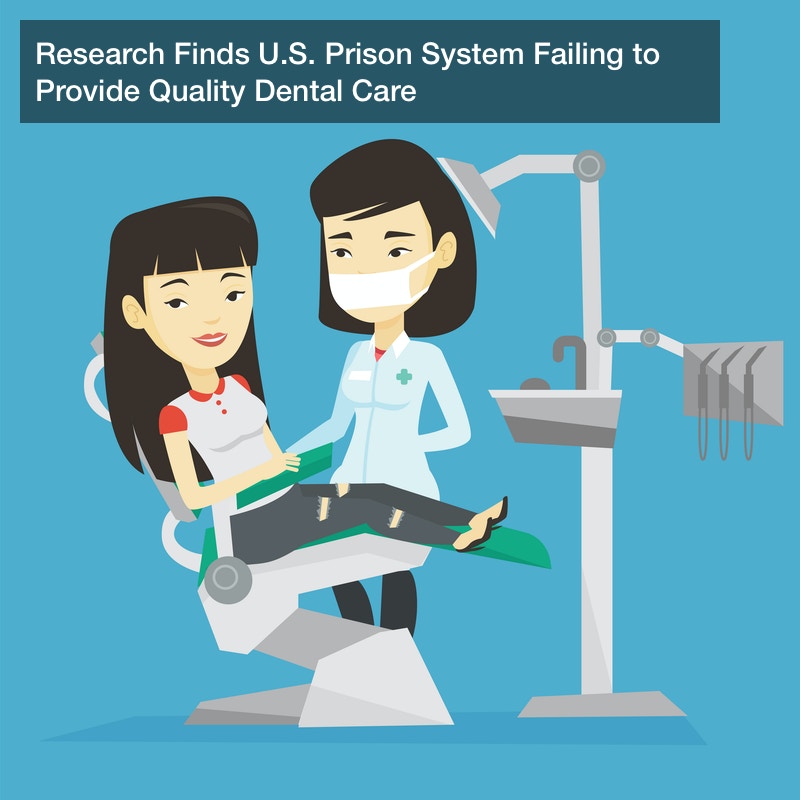One of the unspoken crises of the American prison system is the lack of medical care afforded to the inmates. With so few resources to be used on such a large population, oftentimes inmates are unable to receive the healthcare they need in order to stay in good health. Beyond traditional healthcare is the issues with dental care available in the prison system. Although prisons are legally required to address consistent tooth pain, issues like basic oral care and upkeep often fall by the wayside.
For those prisoners who are still awaiting trial and sentencing, there are options available to help them manage their oral health. First and foremost is to secure a bail bond and negotiate a pre-trial release. By taking advantage of the bail bonding process, an inmate can visit their local dental office to receive the care they need.
There are 178 million people who are currently missing at least one tooth. About 3 million of those people currently have dental implants in the U.S. and that number is growing by 500,000 a year. Worst of all, research shows that the more missing, natural teeth a person has, the farther their life expectancy declines. In fact, those with 20 or more natural teeth at the age of 70 have a significantly higher life expentancy.
Many Americans are nervous about talking to their dentists about receiving these implants, however, because of the high costs associated with them. Though the average American might be skeptical about getting dental implants, they at least have the opportunity to do so. Inmates in the U.S. criminal justice system, on the other hand, aren’t as lucky.
According to The Crime Report, U.S. prisons have been failing when it comes to providing advanced dental care for its inmates.
In a piece written in the American Journal of Public Health, researchers argued that including data on inmates’ dental health in the National Health and Nutrition Examination Survey would help ensure more standardized dental care for the incarcerated. The piece was written by two dentists, Dr. Jay Shulman, a Texas A and M dentistry professor who served as an expert witness in lawsuits involving prison dental services as well as Dr. Nicholas Makrides, a U.S. Public Health Service assistant surgeon general.

“For the most part, prison systems are not worried about inadequate dental care,” said Dr. Shulman. “Prisons are typically not going to do any more than they have to in order to comply with Eighth Amendment, which means the care doesn’t have to be good. It just has to not be so bad as to constitute deliberate indifference and infliction of pain. That’s the correctional standard.”
Dr. Shulman added that it’s extremely difficult for inmates to sue for deliberate indifference or dental malpractice.
In California, which has 750 people incarcerated per 100,000 adults, inmates receive what the state deems as “basic dental services,” which treat tooth decay and minor issues, but refuse to provide dental implants or other cosmetic dental surgery or care.
The study found that amongst the 45 states that were involved with the inquiries, 73% had dental directors working for their prisons, 72% described their prisons as providing routine and emergency dental care, and 52% noted that they required their prison inmates to make a co-payment for any dental service.
Related:
23 hour lockdown in jail, after being released from prison, arrest insurance, broken tooth and no insurance, broken tooth no insurance, can t afford tooth extraction, can you get a broken tooth fixed, can you get life insurance for someone in prison, cheap chipped tooth repair near me, cheapest place to get teeth fixed, cheapest way to fix broken teeth, chipped tooth no insurance, contract system criminal justice, cps dental, cracked tooth price, fix my teeth near me, fix your teeth for cheap, free teeth, free tooth filling, getting teeth fixed without insurance, help fix my teeth.

